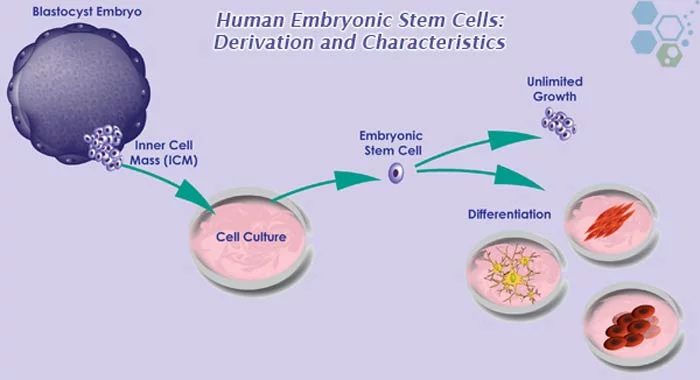
Long-term self-renewal in regen medicine refers to the capability stem cells have for self-replication through continuous division. The result of this natural regeneration cycle is common amongst certain types of non-specialized cells. The process of self-renewing usually occurs over a long period (that could even run for years), and the length and rate of self-renewal is determined on the specific stem cell variant.[1]
The term “long-term self-renewal” often refers to the ability of stem cells to reproduce themselves for prolonged periods throughout the life of an organism. This capability allows stem cells to provide a continuous source of cells for growth, development, repair, and replacement of damaged or worn-out tissues. Let’s discuss the different stem cells and their long-term self-renewal properties:
The self-renewal capability of stem cells is tightly regulated by intrinsic and extrinsic factors:
The understanding of stem cell self-renewal is essential in many clinical contexts. In Regenerative Medicine: By harnessing the self-renewal and differentiation properties of stem cells, The Regeneration Center is revolutionizing treatments for diseases like Parkinson’s, spinal cord injuries, liver cirrhosis, COPD, Diabetes and heart diseases.
Certain cancers contain cancer stem cells that contribute to drug resistance and recurrence. Understanding how to target these cells without harming normal stem cells will lead to better cancer treatments. Overall, the study of long-term self-renewal in stem cells provides insights into fundamental biological processes and holds promise for a variety of therapeutic applications.
The introduction of self-renewing hepatoblast like cells or “HBCs” from human multipotent and pluripotent stem cells “PSCs” that has helped us provide a high quality and stable supply of mesenchymal hepatocyte-like cells for regenerative medical applications.[2]
[1] ^ Deng, Y, X Zhang, X Zhao, Q Li, Z Ye, Z Li, Y Liu, et al. 2013. Long-term self-renewal of human pluripotent stem cells on peptide-decorated poly(OEGMA-co-HEMA) brushes under fully defined conditions. Acta biomaterialia, no. 11 (July 24). doi:10.1016/j.actbio.2013.07.017. https://www.ncbi.nlm.nih.gov/pubmed/23891809
[2] ^ Frelin, Catherine, Robert Herrington, Salima Janmohamed, Mary Barbara, Gary Tran, Christopher J Paige, Patricia Benveniste, et al. 2013. GATA-3 regulates the self-renewal of long-term hematopoietic stem cells. Nature immunology, no. 10 (August 25). doi:10.1038/ni.2692. https://www.ncbi.nlm.nih.gov/pubmed/23974957
Chimeric antigen receptor-T cell treatment (CAR-T cell therapy) holds immense potential to revolutionize organ transplantation, particularly for patients who struggle… Read More
In the ever-evolving landscape of nutrition science, the discourse around dietary fats has undergone significant transformation. The Regeneration Center is… Read More
New research shows that specific types of brain cells become active after brain injuries and exhibit properties similar to those… Read More
Chemokines, critical components in the immune system, are small proteins that facilitate the migration and positioning of immune cells throughout… Read More
Stem cell research examines everything from gene expression to differentiation capacities to therapeutic potentials. With such diverse data types and… Read More
Stem cell therapy has emerged as a revolutionary new treatment approach for neurological and spinal disorders. One up-and-coming method of… Read More